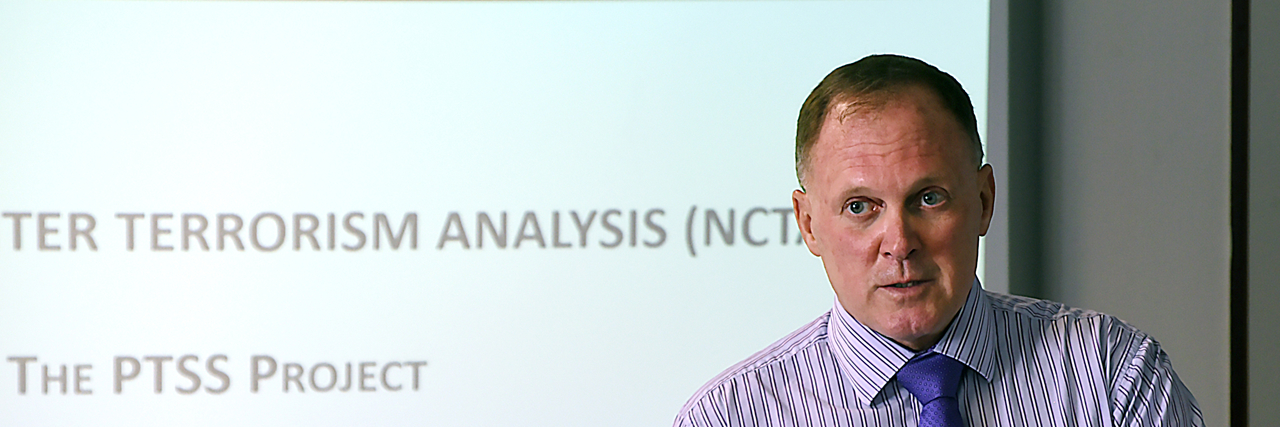
Future Counterterrorism Participants Attend the English Language Enhancement Course
By Christine June
George C. Marshall European Center for Security Studies
GARMISCH-PARTENKIRCHEN, Germany (May 31, 2018) – Ten participants from seven countries are attending the English Language Enhancement Course (ELEC) at the George C. Marshall European Center for Security Studies.
This ELEC is a specially tailored program for participants who will be attending the Marshall Center’s Program on Terrorism and Security Studies (PTSS). This ELEC started May 22 and will end June 26.
“This is an absolutely unique language program, which combines language skills development with the authentic PTSS content,” said Peggy Garza, chair of the English Language Programs Department for the Marshall Center’s Partner Language Training Center Europe (PLTCE).
The Program on Terrorism and Security Studies is a four-week program that supports the Marshall Center's increasing emphasis on transnational threats and challenges.
PTSS provides advanced professional education to those charged with understanding and then reducing the scope and capability of terrorism threats. PTSS 18-12 starts June 27 and ends July 9.
Candidates nominated by their governments to attend PTSS are required to be fully proficient in the English language. Proficiency is tested via an English comprehension-level test administered at more than 120 U.S. embassies worldwide, said Garza.
The Marshall Center's PLTCE developed this five-week English intensive language enhancement course for PTSS candidates who are moderately proficient in English.
The course is designed to improve participants' oral communication and listening comprehension skills, while focusing on course-related terminology necessary for successful attendance in the PTSS resident course.
Retired U.S. Marine Corps Col. James Howcroft, director of PTSS, welcomed the participants to the ELEC Course May 22.
“During PTSS, we want you to understand the threat from modern terrorist groups, build capacity and improve transnational cooperation,” Howcroft said.
He explained that building capacity is understanding how to use their national and international tools in a strategy to combat terrorist groups, and that improving transnational cooperation is building a network of counterterrorism practitioners with “intellectual interoperability” and trust in global coordination and cooperation against terrorism.
Howcroft returned the class to talk about the National Counter Terrorism Analysis or NCTA May 31.
The NCTA is what Howcroft referred to as the “PTSS Project.”
“PTSS is designed to provide knowledge and insights to improve counterterrorism capabilities in your country,” Howcroft said. “The NCTA assists in this process because it demonstrates the benefits of PTSS attendance to your employers and agencies.
He said this exercise creates an “actionable” product for participants to use when they return home.
“The NCTA requires you to consider the terrorist threat to your agencies or countries, identify current counterterrorism shortcomings, make policy recommendations and specify how these recommendations could be put into action.”
He told them that every participant will complete the “PTSS Project.”
While in ELEC, participants will get an introduction to GlobalNet, an internet-based system that connects Marshall Center’s more than 12, 500 alumni from 154 nations. They will also get an introduction to the Marshall Center’s “per Concordiam” magazine, which is a quarterly journal covering European and Eurasian Security and defense issues.
Participants will be able to learn about the books available for their research during a library database brief provided by the Marshall Center Research Library Staff. They will also learn how to work with the library's database to find current information.
They will also receive lectures from the PTSS team on the programs’ topics.
The students hail from: Djibouti; Iraq; Kazakhstan; Moldova; Tanzania; Thailand; and, Togo.